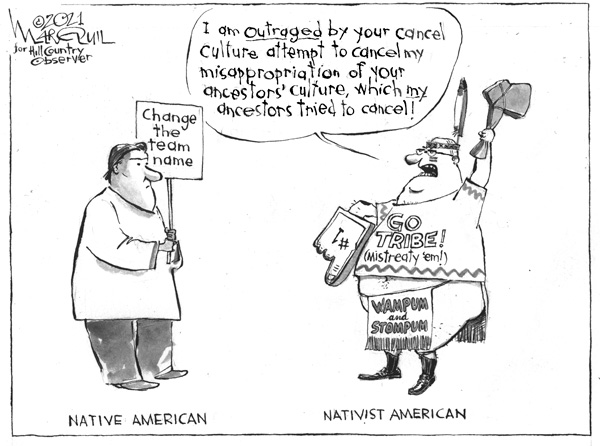Editorial June 2021
E D I T O R I A L
In debate over mascots, choose right side of history
Perhaps we should have seen it coming. But even in our current era of partisan polarization, it still is sometimes surprising to discover which issue or situation will become the focal point of the next culture-war battle.
As our cover story this month details, public school officials in a handful of districts around the region have been grappling over the past year with requests to stop using Native American names and imagery for their sports teams. Those pushing for the change – a combination of alumni, local citizens and Native American groups – say the use of race-based mascots perpetuates derogatory stereotypes about indigenous people and represents a misappropriation of their culture by communities that are overwhelmingly white.
But the effort to retire team names like the Indians, Raiders and Braves has met with a strong pushback, particularly in Cambridge, N.Y., and Rutland, Vt., where opponents organized to elect new school board members who’ve pledged to resist the change.
The opponents include many alumni who remain loyal to their school mascots of years past – and who see the team names as a point of pride and a part of their community’s identity and tradition. Many insist that the use of Native American names and imagery has no racist intent. Some even say the teams are honoring indigenous people.
The debate has turned ugly at times, inflamed by social media. In Rutland, school board members on both sides of the issue reported that they became the targets of threats and harassment. And in Cambridge, the tone grew so heated that the school board hired professional mediators to help proponents and opponents of the name change talk to each other.
The Rutland school board voted 6-4 in February to change the name of the Rutland Raiders to the Rutland Ravens, but voters in a March election chose three new board members, creating a bloc that could potentially reverse the decision. In Cambridge, voters in last month’s school election overwhelmingly backed the two candidates who’d pledged to oppose the name change, but the issue might still come to a vote this month – before one of those new members takes office.
Even if the opponents have shown that they have the strong support of local voters, however, they may soon find themselves on the wrong side of history.
In New York, it has been 20 years since then-state Education Commissioner Richard Mills called on the state’s 700 public school district to stop using Native American mascots, nicknames and logos “as soon as practical.” Continuing to use them, he warned, would “send an inappropriate message to children about what is or is not respectful behavior toward others.”
And like it or not, it simply isn’t respectful for an overwhelmingly white community to use Native Americans as props for its sports teams, particularly given the ugly North American history of indigenous people being driven from their lands and in some cases slaughtered by white settlers.
It’s because of that history that school districts across New England have been moving away from the use of Native mascots and team names in recent years. In Vermont, after Rutland’s name change, only five such teams are left.
Maine has already banned school districts statewide from using Native American sports mascots. Proposals to do the same have been introduced in the most recent legislative sessions in Vermont, Massachusetts and New York.


